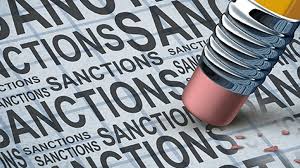The topic of the sanctions imposed on Zimbabwe by the United States of America and other Western countries can be a very contentious one. It is a subject which can cause people’s emotions to run high regardless of their position on the matter. Officially and on paper, the US government and its officials are adamant that the sanctions are not against the whole country, its government or its citizens but are rather targeted at just a few select individuals and entities.
Many hours have already been spent, as even more will doubtlessly be, debating whether or not the US sanctions program against Zimbabwe is targeted. At the end of the day, ordinary Zimbabweans can only speculate while politicians, on the other hand, will always be politicians. The only people who can paint an accurate and helpful picture of the actual situation on the ground are those most likely to experience the effects or lack thereof of these sanctions: those who engage in international trade, those with monies banked with foreign financial institutions and those who regularly move money across borders. Since many Zimbabwean internet entrepreneurs meet these criteria, we’ll focus on them and their experiences.
Foreign bank accounts can get randomly frozen
Kuda Musasiwa of FreshInABox recently shared on Twitter that his online fresh produce delivery startup almost went belly up after all their UK bank accounts got frozen. He claims that the reason for all this grief was probably the OFAC regulations against the country which are making banks extra wary of doing business with companies which have operations in Zimbabwe. Meanwhile, another Twitter user claimed that when he tried to send money to Zimbabwe via Standard Bank in South Africa, a teller warned him that his money might get “confiscated by the USA because of sanctions”. His claims were however met with considerable opposition from others who claimed to regularly use the same bank for similar purposes without any issue.
Zimbos are unwelcome on several financial services platforms
Internet-based payment and financial services providers also paint a considerably different picture of the sanctions against Zimbabwe to that being provided by the US government. Payments platform Paymentwall, for instance, lists Zimbabwe as one of the 13 sanctioned countries whose citizens are not welcome to create merchant accounts on the site (a list that also contains Afghanistan, Iraq, North Korea and both Sudans). Strangely absent from the same list is the DRC which is reportedly also under “targeted” sanctions.
Hyperwallet, a Paypal service used to distribute payments to contract workers, freelancers and sellers around the world appear to have simply blocked Zimbabwean IP addresses from accessing its website. Meanwhile, Paypal itself doesn’t allow Zimbabweans to create merchant accounts on its platform.
Mercury, an online service which describes itself as a bank built for e-commerce, allows people to create US bank accounts and get virtual debit cards online. It appears that citizens from any country in the world can create one of these bank accounts. That is any country except one of the 19 sanctioned ones which Zimbabwe is, again, part of.
Paysera is yet another service which does not do business with Zimbabweans because of sanctions. The same sanctioned country list, which is beginning to look like standard boilerplate, is also used.
One of the few rays of hope for Zimbabweans who want to do business online and receive payments is Payoneer. Payoneer’s availability to Zimbabweans does not appear to be just a mere oversight but a feature. There is country-specific information and none of it is the country’s name on the dreaded and familiar sanctions list.
The collateral damage has been acknowledged
Back in 2014, 21-year-old NUST student and later to be the founder of the Techvillage innovation hub in Bulawayo, Takunda Chingonzho became famous when he interviewed the then president of the United States, Barrack Obama at the US Africa Business Summit. The main issue he touched upon was that of the supposedly targeted sanctions which were yet somehow making it difficult for innocent entrepreneurs like him to do business and get investment. Obama begrudgingly admitted that the fallout from sanctions could indeed affect those who were not meant to be the targets and mentioned refining the sanctions further.
The bottom line
Even if the sanctions are targeted, doing business in a country with a lot of sanctioned individuals and institutions is very risky. Take for instance the relatively light fine which e-commerce giant Amazon recently received for allowing sanctioned individuals to buy from them. At least one of the unnamed individuals whom Amazon sent packages to is a sanctioned Zimbabwean. Amazon had to pay $135,000 because its automatic sanctions-screening system failed to flag these people. While that may not be much of a fine for a company as big as Amazon, you can see why other companies would prefer to steer clear of such risky countries. Even worse for Zimbabweans is the fact that the country may not appear to be a particularly promising market for these companies. This means that as soon as they weigh the risks against the gains, many opt to cut Zimbabwe off completely regardless of the specifics of the actual sanctions regulations.









This is actually true – I for one has been blocked from many web applications because of merely being a Zimbabwean. Probably we need to create our own systems.
Not a bad idea Frederick but we may be late to that party. The world is so interconnected now we will have to deal with these sanctions at some point.
We have to harness the use of cryptocurrency
Crypto could work for some purposes. Zimbabweans are adopting it as a means to international transacting though it takes a lot to get into it compared to the easier traditional platforms.
so true. this has affected a lot of zimbabweans. for example, those who into online forex trading can not open e-wallets account with skrill, netteller etc. they also cant open accounts with UK, US or Australian Brokers. we cant access NYSE website and a lot of websites. haaaaa authorities should jus do somethin and get these so called targeted sanctions removed as they affect a lot of things..